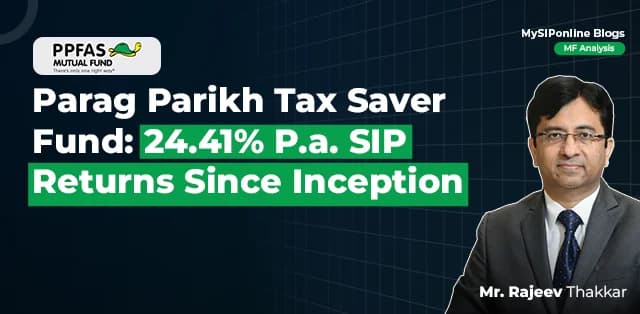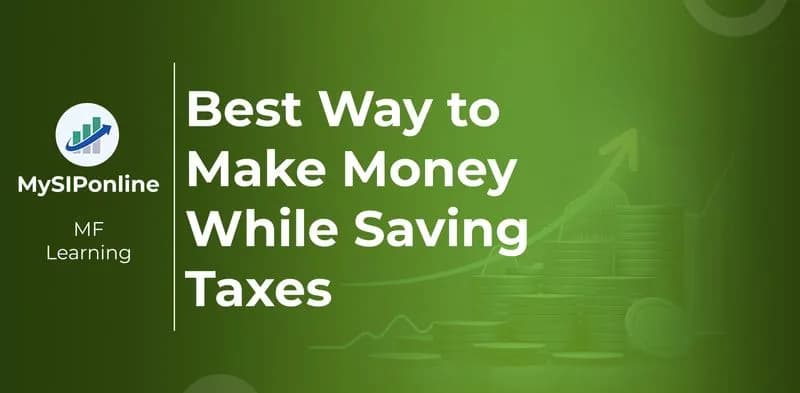Table of Contents
- ICICI Prudential ELSS Tax Saver Fund (Tax Saving) - Growth
- DSP ELSS Tax Saver Fund - Regular Plan - Growth
- Kotak ELSS Tax Saver Fund-Scheme-Growth
- Mirae Asset ELSS Tax Saver Fund-Regular Plan-Growth
- Quant ELSS Tax Saver Fund Regular Plan-Growth
Tax planning is an important aspect of managing your finances effectively. It involves strategizing to minimize the amount of income tax you owe while making the most of your hard-earned money. In this blog, we will explore the importance of tax planning, we'll discuss different tax planning strategies, including the use of the new tax regime, standard deduction provision, rebate, Section 80C deductions, and other deduction provisions available under the Income Tax Act. Understanding these tactics will help you develop the tax system more effectively, potentially lowering your tax burden. Let us get started and understand how you may improve your tax preparation to ensure your financial future.
Why Tax Planning is Important?
Tax planning involves strategically managing one's financial affairs to reduce the amount of income tax owed to the government. It includes responsibilities such as properly calculating or estimating taxable income, making use of under-tax regulations, and strategically utilizing investment opportunities to reduce the total tax burden.
Tax Planning Varies Across Different Income Groups
Individuals in different income groups utilize different tax planning strategies since the tax rates that apply to them are determined by their income level. For example, imagine three income classes.
Low-Income Group
This category includes those earning up to Rs.2.5 lakh annually. They are qualified for a basic exemption limit, which means they are not required to pay any income tax on their earnings.
Middle Income Group
The Middle-Income Group includes those earning between ₹2.5 lakh and Rs.5 lakh annually. Individuals in the 5% tax bracket can obtain a rebate of up to ₹12,500 under Section 87A of the Income Tax Act.
High-Income Group
Individuals earning over Rs.5 lakh per year are in higher tax bands. They are liable to tax rates ranging from 20% to 30%, depending on their income.
Each income group requires a unique tax planning strategy to reduce their tax liability while increasing their savings and investments. Therefore, recognizing one's income category is essential for good tax preparation.
Tips for Income Tax Planning 2024
The use of a new tax Regime to Reduce the Tax Burden
Deciding whether to use the new tax rules to lower your tax payments depends on your money situation. The new rules have lower tax rates but fewer ways to lower your taxes compared to the old rules.
If your finances are straightforward and you don't have many deductions or exemptions, the new rules might be better for you. They can make it easier to file your taxes and could mean you pay less in taxes overall.
But if you have lots of deductions and exemptions under the old rules, it might be smarter to stick with them. Especially if you have investments or home loans that help you save a lot on taxes.
Overall, you should pick the approach that fits best with your income, deductions, and long-term financial goals. It can be helpful to talk to a tax advisor or financial planner to figure out what's right for you.
How to use Standard Deduction Provision
To get better understanding of how salaried taxpayers and pensioners can benefit from a standard deduction on salary, let’s consider an example:
your gross salary is ₹12 lakh. you have decided to stick to the old tax regime. In this case, your net taxable income before the Section 80C deduction will look like this:
As you can see salaried individuals like yourself who are in the highest tax bracket of 30% can save up to Rs. 15,000 in income tax due to standard deduction. Pensioners who have taxable income as per the current income tax slab rate can also use this benefit to the same extent.
How to Rebate
Under Section 87A of the Income Tax Act, individuals with a total taxable income of up to Rs. 7 lakh who choose the new tax regime are allowed to a rebate. In simpler terms, if an individual's tax liability on their total income is less than Rs. 25,000, they will receive a rebate equal to the total tax payable. However, if their tax liability is more than Rs. 25,000, the rebate will be at Rs. 25,000. This provision aims to provide relief to individuals with lower income levels, effectively reducing their tax burden and increasing their disposable income.
How to use Section 80C Deduction?
You can use Section 80C deductions by investing in specific financial products such as ELSS Mutual Funds, PPF, and NSC, or making payments to EPF or life insurance premiums. Investing up to ₹1.5 lakh in these products can help taxpayers decrease their taxed income and obligations. To qualify for the deductions, you have to conform to the investment limitations and conditions outlined in the Income Tax Act.
Some other Tax Deduction Provision
Some other deduction provisions in the Income Tax Act, are Section 80D for health insurance premiums, Section 80E for school loan interest, and Section 80G for charitable contributions, which provide taxpayers with other ways to decrease their taxable income. Individuals can use these provisions to reduce their tax responsibilities while also fulfilling important financial needs such as healthcare expenses, education costs, and charitable contributions. To successfully maximize tax savings, you need to understand the qualifying requirements and limitations associated with each deduction component.
Conclusion
To sum up, efficient tax planning plays an important role in reducing tax bills and increasing savings. Taxpayers may better manage the tax system if they understand the importance of tax planning and use tactics like the new tax regime, standard deduction provision, rebate, and Section 80C deductions. Investing in tax-saving financial products such as ELSS mutual funds, as well as taking advantage of deductions for health insurance premiums and charitable contributions, can help to dramatically lower taxable income. As we go into 2024, solving tax preparation and taking advantage of Online SIP, choices can help individuals reach their financial objectives while optimizing tax savings.






(1).webp&w=3840&q=75)




